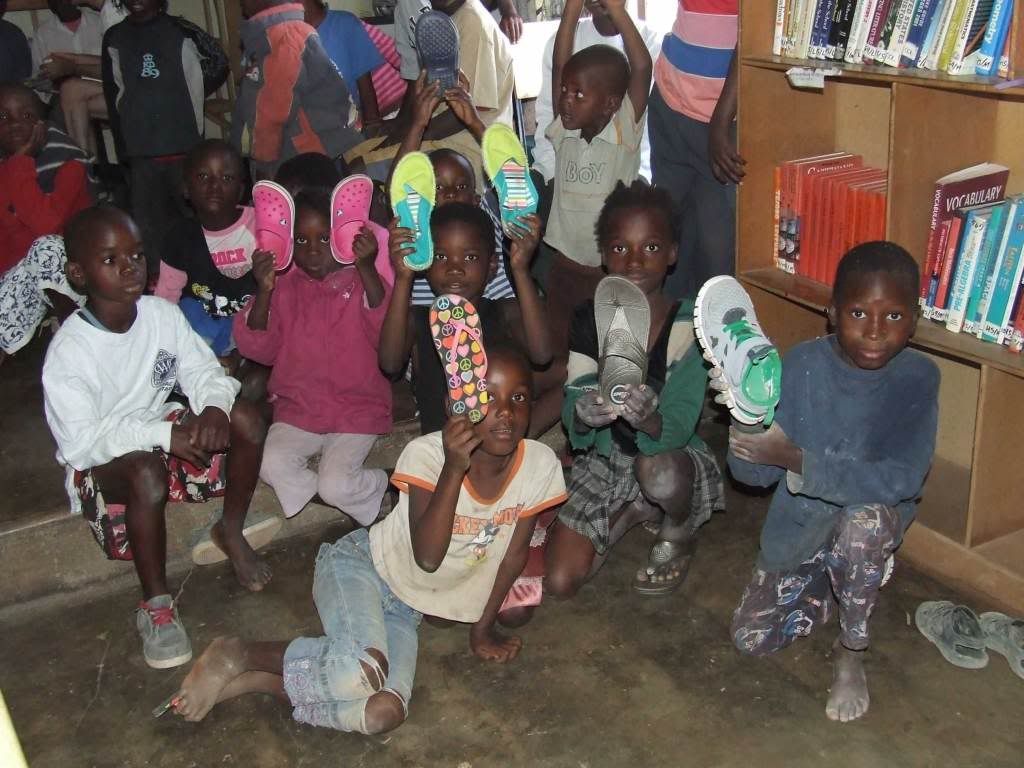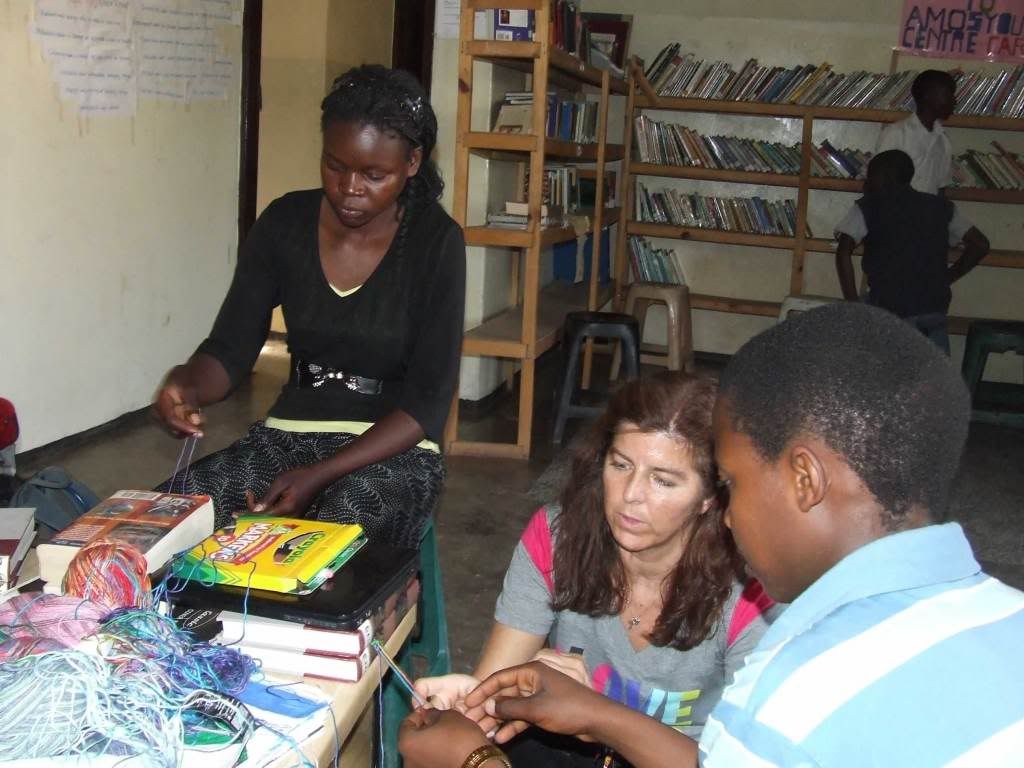AYC staff and students educate each other
Today’s blog is presented by the Amos Youth Center Action News Team: Agnes, Anita, Cynthia, David, Lillian, and Lucy. The group collectively interviewed the African Education Program staff and volunteers. “As they were talking, they were teaching us,” Lillian said.
Girl-child education was an underlying theme through most of the interviews.
Anita summed up the problem quite clearly and succinctly: “In Zambia, many people believe the boys are more important than girls and should be better educated.”
The entire nation will benefit when boys and girls are treated equally. “If you educate the girl-child, you educate the entire community,” Agnes Banda, AYC Director said.
Our first visit was with Julien, who was about to enter the classroom for another math session.
“In the morning he was teaching a math class and there were only girls,” Cynthia said.
Added Anita: “He said he didn’t know if the lesson was productive because it was so short.”

We corned Mario next in the hallway and shepherded her into one of the study rooms. Mario said it was a beautiful and busy day that began with a visit to the bank and the distribution of shoes to more than 30 children. The questions were fast and furious.
“I’m observing the students are behaving and being nice to each other,” Mario said. “I would like you to read more, and I would like to see you work more on your English language. If you have an idea how to help us, please let us know.”
Mario was the first of our subjects to bring up girl-child education. “We would like to see more of our girls attend college,” she said.
No sooner had the interview with Mario ended that the team spotted Karen, who was quickly surrounded. It was a productive day for Karen, who said she conducted a couple of interviews and was a leader in a session about “Saying No.”
“I love doing this,” Karen said. “Every day here is a great day. The group is learning how to live together, support each other, and behave as a family.”
The team zeroed in on Julie-Anne next. She relayed that her day included conducting video interviews with different students, teaching how to make friendship bracelets, and discussing rules of the center with Agnes.
Julie-Anne was asked for solution to the girl-child education problem. “The AYC staff may need to have 1-one-1 talks with the parents and guardians,” she said.
 Agnes was working at her desk just a few feet from Julie-Anne. The team learned that Agnes has been up since 4 a.m. and at the center since 8:30. She explained AYC has been making a positive impact on the community.
Agnes was working at her desk just a few feet from Julie-Anne. The team learned that Agnes has been up since 4 a.m. and at the center since 8:30. She explained AYC has been making a positive impact on the community.
“There is a lot of change in our students at the center,” Agnes said. “Maybe we will see you interview the president and that will be a great achievement.”
Of course, Agnes, a Zambian herself, is passionate that girls receive the same educational opportunities as boys. “We want to make sure there is a balance at home for the boy-child and girl-child,” Agnes said. “We want the girls to be community leaders.”
After a quick conference, the team found Kathy knitting friendship bracelets. Kathy revealed that she finished a couple interviews and was a leader in the topical conversations with Karen.
“I’ve learned a lot about what you think and how you think,” Kathy said. “I take it for granted you’re smart and sometimes you go extra and prove it.”
 The team had to venture outside into AYC’s front yard to find Sofia, who completed a batch of administrative work and bonded with different groups of students.
The team had to venture outside into AYC’s front yard to find Sofia, who completed a batch of administrative work and bonded with different groups of students.
“Pupils here are very smart, very pretty, and very driven,” Sofia said.
Sofia also weighed in on the issue of girl-child education. “Girl education is one of the most important things to bring this country up,” she said. “You are the future.”
And just maybe that future will include some female Zambian journalists named Agnes, Anita, Cynthia, Lillian, and Lucy. We also can’t exclude David, the lone male member of the team.

